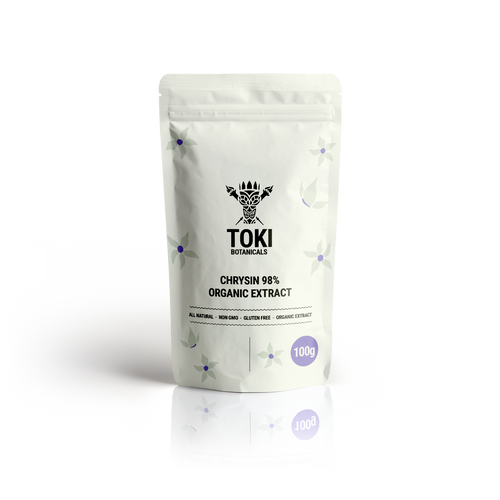Product Description
Fucoxanthin is a powerful nutrient that comes from brown seaweed. Studies are very positive and consistently show great benefits to the human body. The research shows that fucoxanthin can have a positive effect on metabolic rate and fat metabolism. It appears to stimulate a protein called UCP1, which causes fat oxidation and conversion of energy to heat. UCP1 is found in the type of fat we don't want too much of, white adipose tissue. Besides fucoxanthin, this brown seaweed also contains glyconutients, which are very important for cellular communication, and significantly benefits the immune system. (1) Glyconutrients also have research showing benefits to memory, concentration, and alertness. (2)
Fucoxanthin also has an effect on something called PGC-1 alpha, which has a powerful effect on mitochondrial health. Mitochondrial health is an area that has been neglected by the medical system and health in general until only recently. Studies now show how crucial it is to focus on improving the quality and health of our cells core and powerhouse. So many disease states and conditions are now linked to the degeneration of the mitochondria. Taking supplements like fucoxanthin, astaxanthin, PQQ, lipoic acid, and others can go a very long way to good health and well being. Fucoxanthin also upregulated powerful genes like mitochondrial fusion, biogenic, mitofusin, and several others. It's obvious from the research done that fucoxanthin has a powerful effect on the body. (3)
This effect can take time to see tangible results, though, but most people really like fucoxanthin if they take it long enough. Many people notice increased energy fairly quickly, but not everyone. Even if an energy boost doesn't occur, fucoxanthin is still doing positive things in the body. One of the main problems with fucoxanthin is it's bio-availability is quite poor. Bio-availability and effectiveness would likely increase if taken with bio-availability enhancers.
Seaweed in general is usually great for under-active thyroids because of the iodine and nutrients as well. (4) Regarding fat metabolism, fucoxanthin has the ability to regulate cytokine secretions abdominal fat cells. It's often said that belly fat is the most dangerous for this very reason. Certain pro-inflammatory cytokines cause damage to many nearby organs, and it's a cycle that doesn't stop unless something is done. This is likely why fucoxanthin also improves insulin resistance, glucose levels, and has an anti-obesity effect. (5)
Fucoxanthin also has the rare ability to stimulate mitochondrial biogenesis, a very desired attribute that helps protect our perpetually attacked mitochondria. This is a process whereby cells increase adenosine triphosphate by synthesizing additional respiratory enzyme complexes. The mitochondria increases in mass and copy number, and is even able to form new mitochondria. It also displays some anti-cancer, anti-inflammatory effects, DNA protective, anti-radiation, antioxidant, anti-diabetic, anti-obesity, antiangiogenic, anti-malarial, and helps protect the liver, bones, skin, eyes, and blood vessels of the brain.(6,7)
According to several pieces of research, fucoxanthin has the powerful ability to activate at least one PPAR receptor, and possibly multiple receptors. PPAR receptors and activation is a fairly new area of research showing tons of promise, and is the theme of new drugs. The problem with drugs that activate the receptor is that it does so in such a way that causes other issues in the body. Luckily, this effect doesn't occur with natural PPAR activators such as fucoxanthin. Fucoxanthin is incredibly safe and beneficial at the recommended dose. Activating PPAR receptors causes somewhat of a systemic effect in the body and acts somewhat as multifaceted mechanism, affecting the metabolism of different nutrients, energy, and biological functions.
Suggested use: 60mgs twice per day.
References
- http://www.ncbi.nlm.nih.gov/pubmed/9829439
- http://www.glyconutria.com/glyconutrients-brain-function.html
- http://www.ncbi.nlm.nih.gov/pmc/articles/PMC3944525/
- http://www.ncbi.nlm.nih.gov/pubmed/25871295
- http://www.thyroid-info.com/diet/fucoxanthin.htm
- http://www.ncbi.nlm.nih.gov/pmc/articles/PMC3210606/







